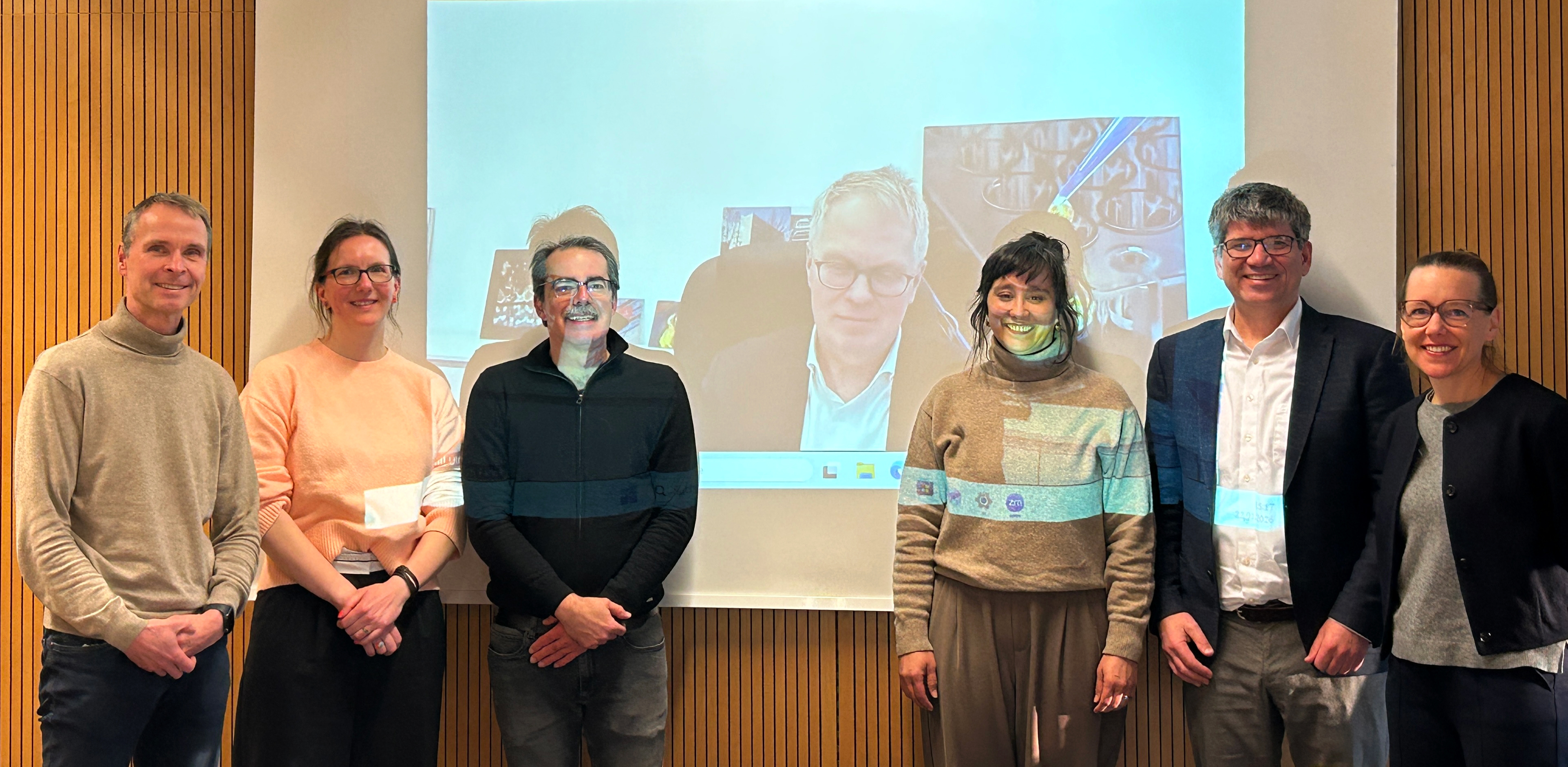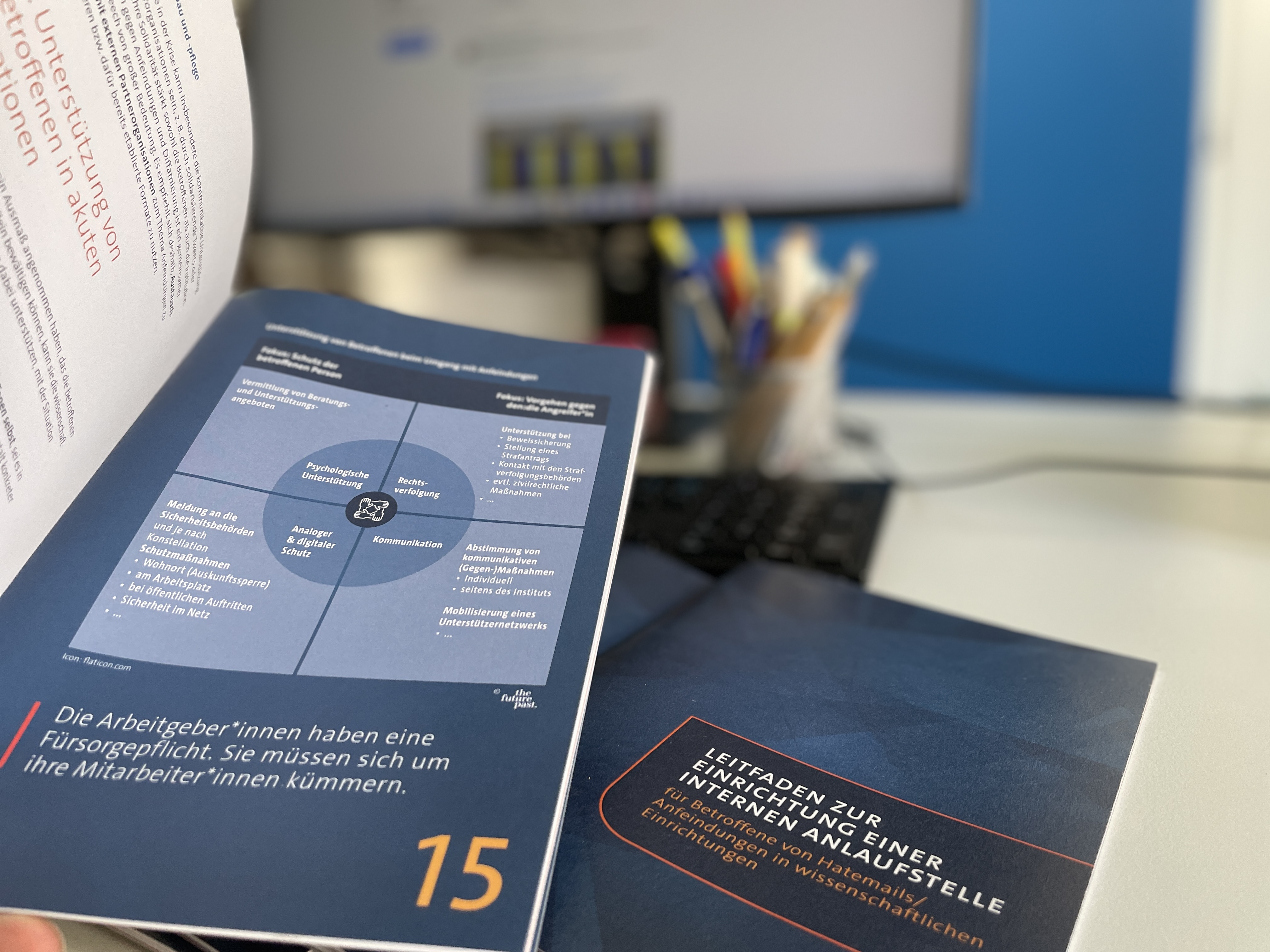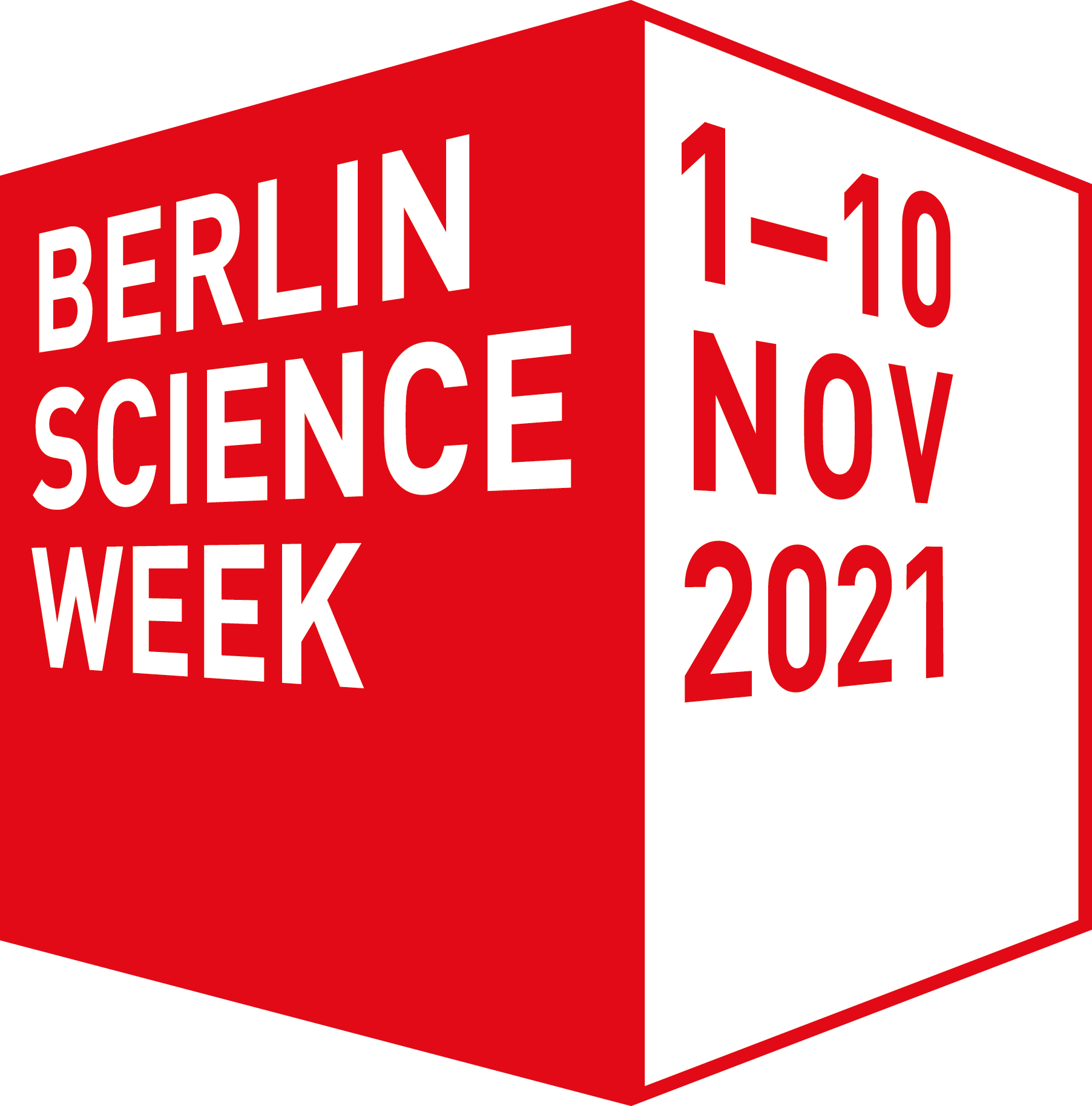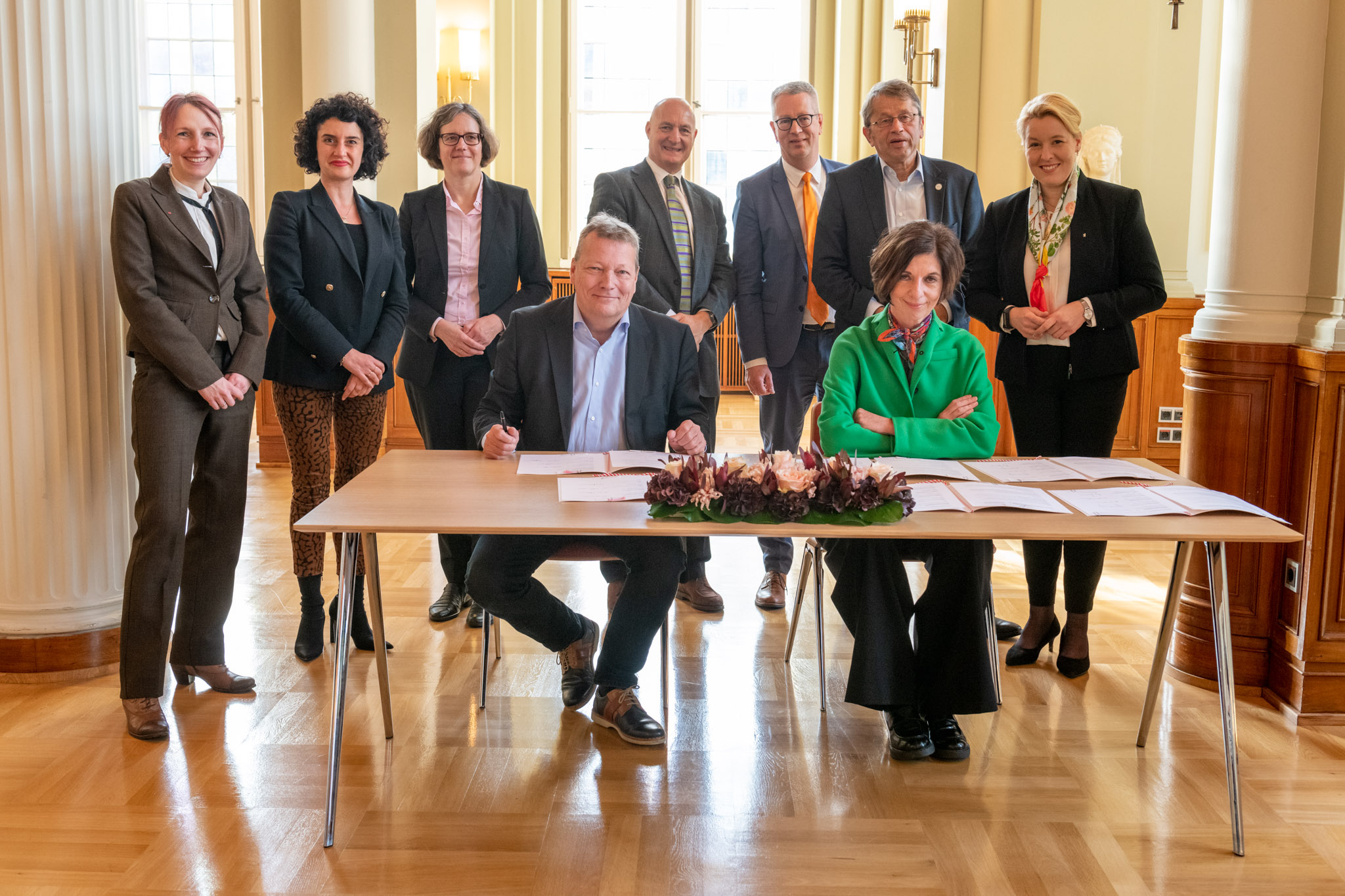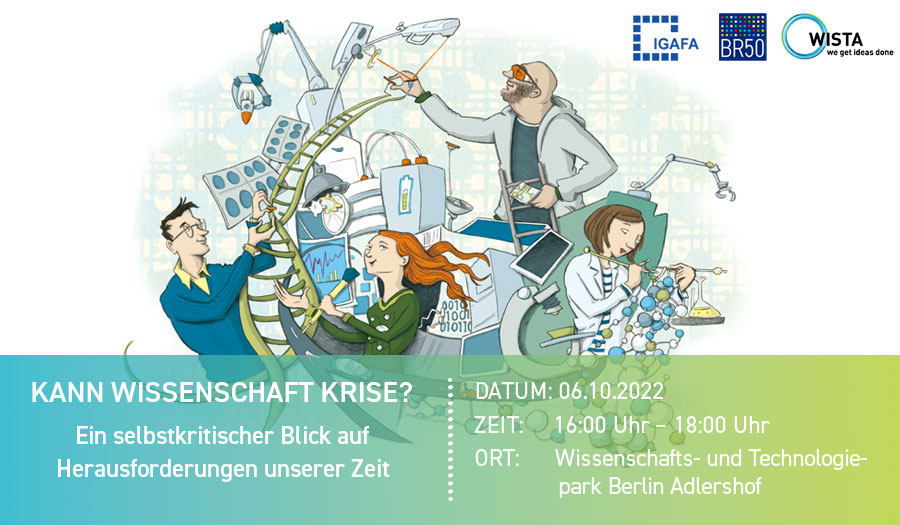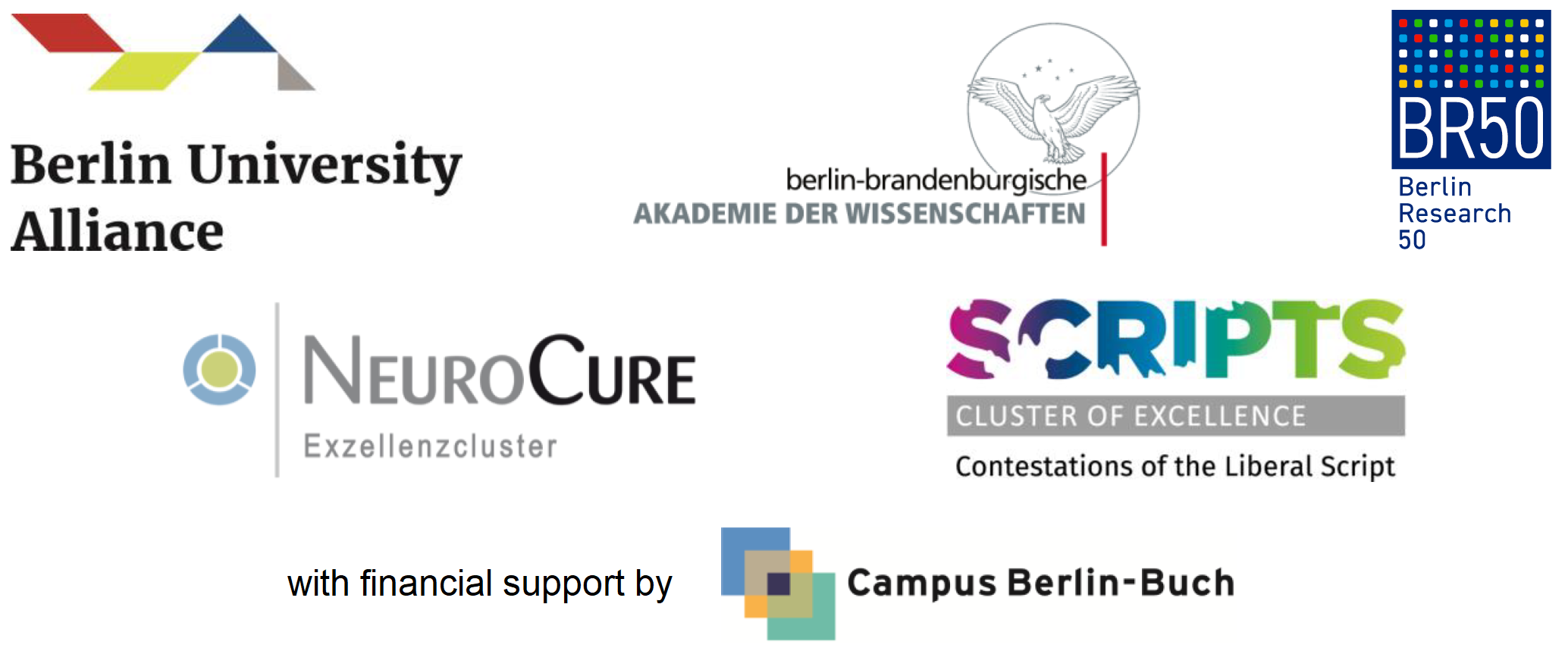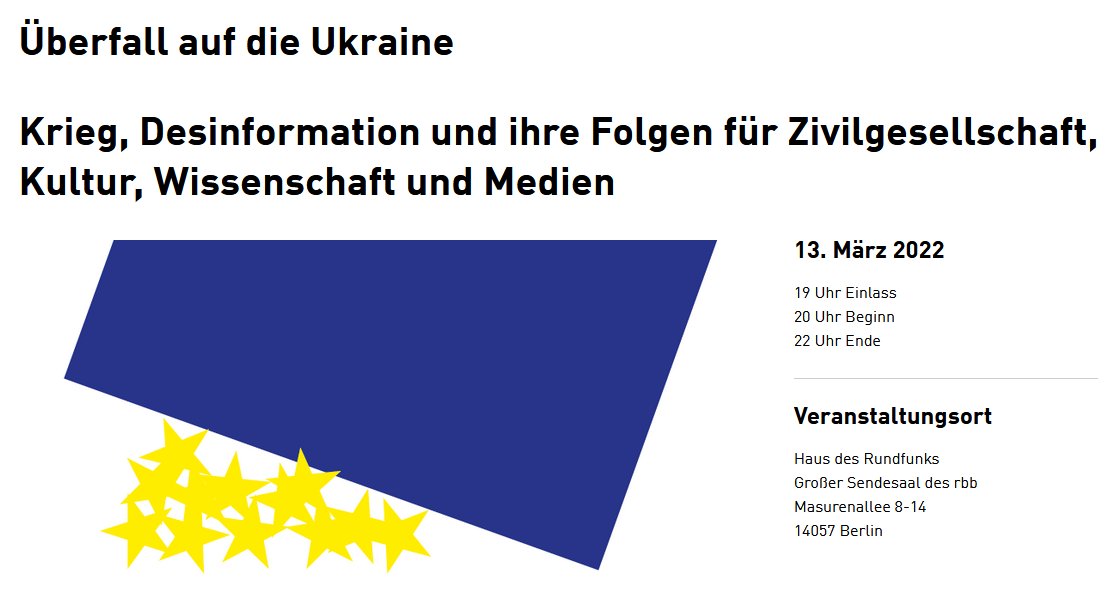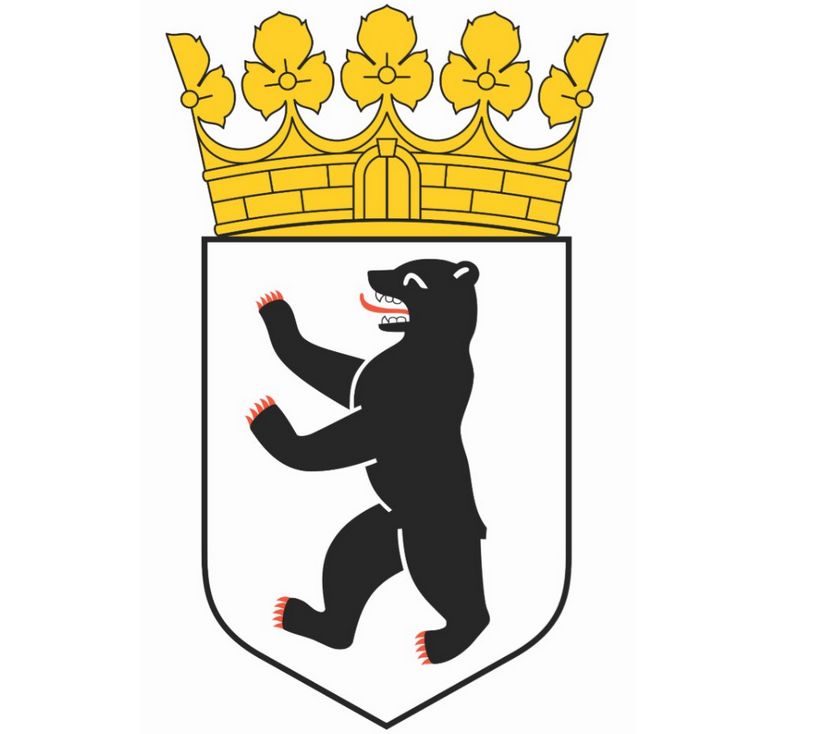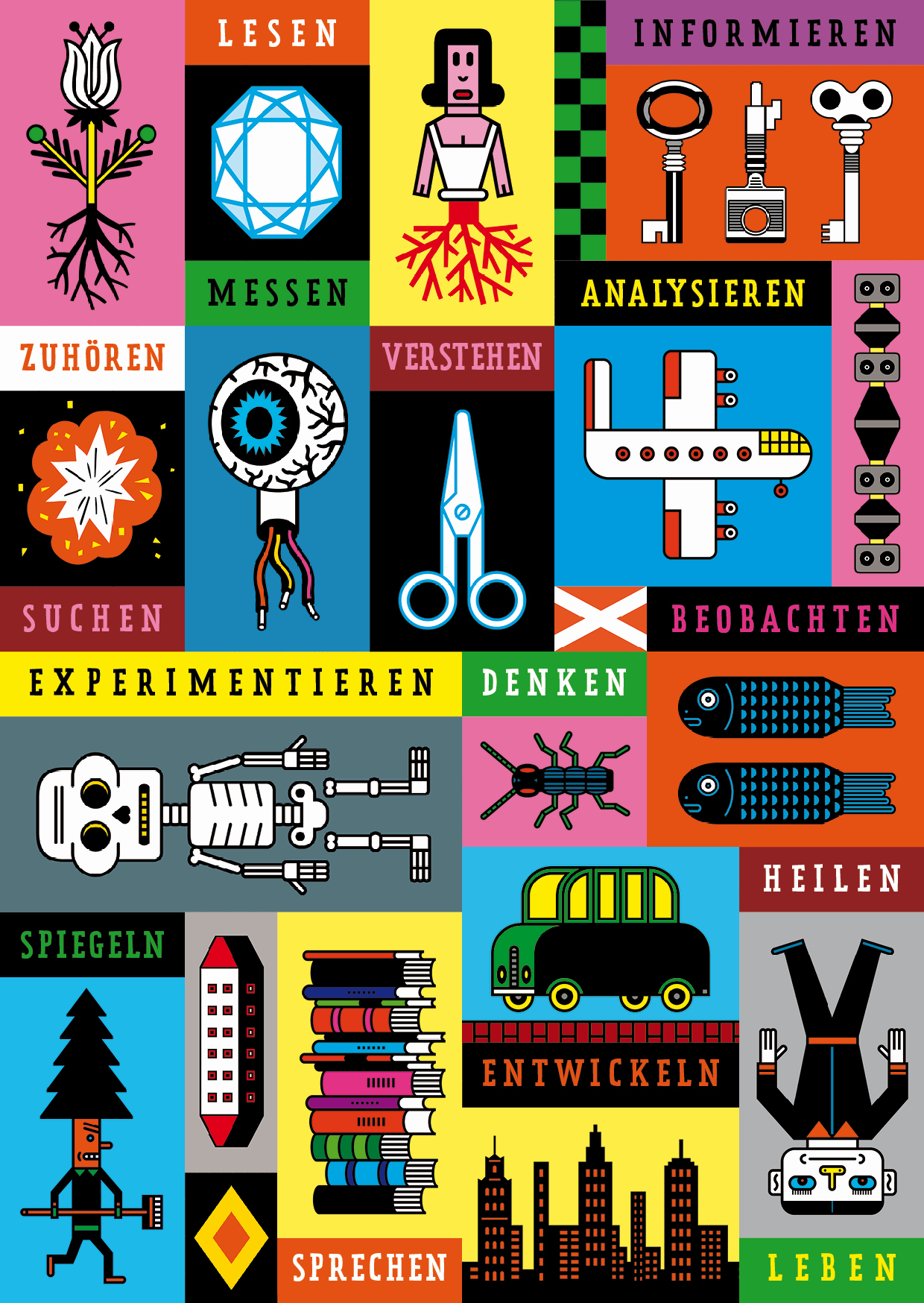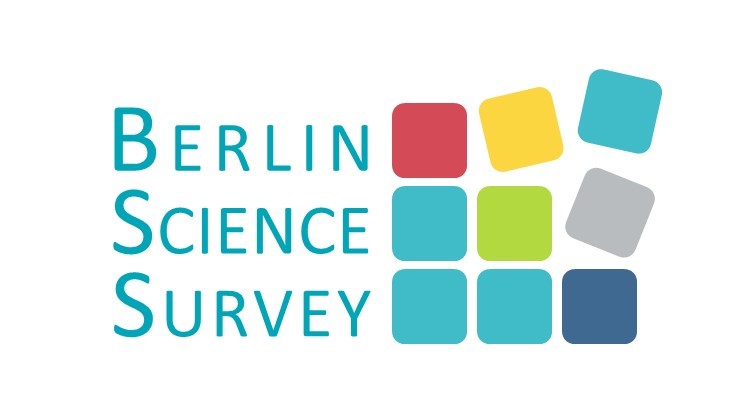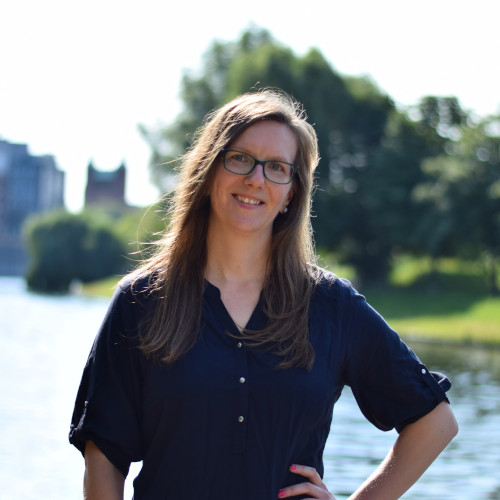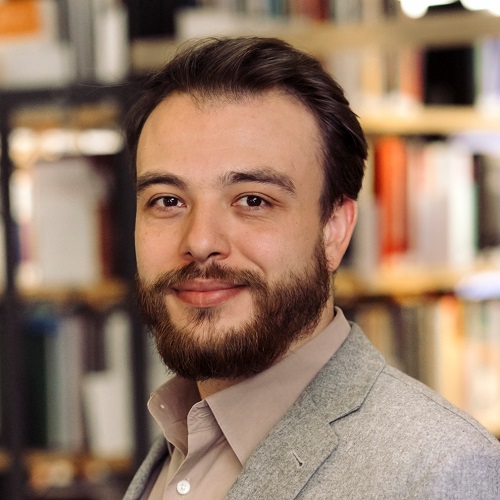News
Constitutive board meeting
Prof. Dr. Michael Hintermüller (WIAS) becomes Chairperson of the Board of Directors and Dr. Noa K. Ha becomes Deputy Chairperson
Constitutive board meeting
Prof. Dr. Michael Hintermüller (WIAS) becomes Chairperson of the Board of Directors and Dr. Noa K. Ha becomes Deputy Chairperson
Following the board elections in December 2025, the constututive meeting of the new BR50 board took place on January 22nd. Dr. Noa K. Ha (German Center for Integration and Migration Research (DeZIM)), Prof. Dr. Volker Haucke (Leibniz-Forschungsinstitut für Molekulare Pharmakologie (FMP)), Prof. Dr. Bernd Rech (Helmholtz-Zentrum Berlin für Materialien und Energie (HZB)), Prof. Dr. Michael Hintermüller (Weierstrass Institute for Applied Analysis and Stochastics (WIAS)) and Uta Bielfeldt (German Rheumatism Research Center Berlin (DRFZ), a Leibniz Institute) met at the FMP on the Berlin-Buch campus. Also present were Prof. Dr. Ulrich Panne (Bundesanstalt für Materialforschung und -prüfung, connected online), former board member, and Dr. Anja Sommerfeld, head of the BR50 office.
The board elected Michael Hintermüller as chair, Noa K. Ha as vice chair, and Uta Bielfeldt as treasurer. In addition to clarifying further formalities, the board also discussed how BR50 will position itself in terms of content in 2026, based on the discussions at the general meeting. The next steps are now a visit to StS Dr. Henry Marx (Senate Department for Higher Education and Research, Health, and Long-Term Care) and the expansion of strategic cooperation with the Berlin University Alliance in order to jointly shape the science policy framework for a competitive location. In addition, the Board of Directors aims to strengthen the network among the members and increase their involvement in the association
In case you have any questions, please contact the BR50 offices (sommerfeld[at]fv-berlin[dot]de).
New BR50-Board
The BR50 members elected a new board at the general meeting
New BR50-Board
The BR50 members elected a new board at the general meeting
At the annual BR50 general meeting, which took place on December 9, 2025, at the Physikalisch-Technische Bundesanstalt (PTB), a new board was elected: Prof. Dr. Jutta Allmendinger, Prof Dr. Thomas Sommer, and Prof. Dr. Ulrich Panne handed over to Dr. Noa K. Ha (German Center for Integration and Migration Research (DeZIM)), Prof. Dr. Volker Haucke (Leibniz-Forschungsinstitut für Molekulare Pharmakologie (FMP)), and Prof. Dr. Bernd Rech (Helmholtz-Zentrum Berlin für Materialien und Energie (HZB)).
Prof. Dr. Michael Hintermüller (Weierstrass Institute for Applied Analysis and Stochastics (WIAS)) and Uta Bielfeldt (German Rheumatism Research Center Berlin (DRFZ), a Leibniz Institute) remain on the board.
The meeting also served as a review of the year 2025, and there was intensive discussion about the future direction of BR50 and the role of the association in Berlin's research and innovation space. The members are ready to tackle 2026 with enthusiasm and are looking forward to work together with the Berlin University Alliance and all other relevant stakeholders.
In case you have any questions, please contact the BR50 offices (sommerfeld[at]fv-berlin[dot]de).
Careers after a PhD – what if you don't want to become a professor?
World Café: Insights in science-related professions
Careers after a PhD – what if you don't want to become a professor?
World Café: Insights in science-related professions
What comes after a doctorate? Not every academic career leads to a professorship. But what other options are there? Anyone pursuing a PhD should think about their professional future.
In addition to a career in research, science-related fields offer exciting alternatives: whether science management, science communication, research and data management, policy consulting, or the practical application of knowledge.
The Centre for East European and International Studies (ZOiS) and the BR50 Interest Group IG Third-Party Funding and Career Advice jointly offered an event in World Café format to highlight alternative career paths. Around 20 PhD candidates had the opportunity to talk to five experts about science-related career fields.
The experts were:
- Science management – Dr. Anja Sommerfeld (Berlin Research 50 (BR50))
- Scientific information – Mathis Fräßdorf (Berlin Social Science Center (WZB))
- Science communication – Stefanie Orphal (Centre for East European and International Studies (ZOiS))
- Policy advice – Christian Kobsda (Berlin Office of the Max Planck Society)
- Knowledge transfer – Gözde Böcü (Impact Hub, SCRIPTS Berlin)
Together, experts and participants explored the importance of networks and how to build and maintain them. It is also essential to recognize your own skills and communicate them confidently, but also to have the courage to balance your professional life with your private life plan. After all, career paths for people holding a PhD-degree are diverse, exciting, and full of opportunities, including for multiple career changes.
Due to the great success of the event, including positive feedback, the possibility of making it a regular feature is currently being discussed.
In case you have any questions, please contact the BR50 offices (sommerfeld[at]fv-berlin[dot]de).
Science under pressure - strategies for dealing with hostility
Science under pressure - strategies for dealing with hostility
Open dialog between science and society is essential for a democratic public sphere - but it also entails risks for scientists. Researchers who publicly share their expertise are increasingly exposed to hostility. To ensure that they do not remain alone in such situations, clear institutional responsibility and permanently established support structures are needed.
As part of BR50, the Center for East European and International Studies (ZOiS) organised an event showing various points of contact, that are dealing with hostility. In short inputs, the State Office of Criminal Investigation Berlin (LKA), Scicomm Support and ZOiS provided insights into their perspectives and support services. This will be followed by a Q&A session.
Afterwards, there will be the possibility for networking and informal exchange.
In case you have any questions, please contact the BR50 offices (sommerfeld[at]fv-berlin[dot]de).
More than 20 researchers from BR50 instituts are among the 100 leading minds in science in Berlin and Brandenburg
More than 20 researchers from BR50 instituts are among the 100 leading minds in science in Berlin and Brandenburg
In its ten-part series from September 29 to October 10, 2025, Der Tagesspiegel presented the 100 most influential researchers in Berlin and Brandenburg. Honored were social scientists who deal with regimes and power, legal systems, and mechanisms of exclusion; medical professionals and researchers who develop future technologies, advance the energy transition, and study planetary systems. Scientists from the following BR50 instituts were honored:
- Bundesanstalt für Materialforschung und -prüfung (BAM)
- Deutsche Zentrum für Integrations- und Migrationsforschung (DeZIM)
- Deutsches Institut für Wirtschaftsforschung (DIW)
- Deutsche Rheumaforschungszentrum (DRFZ)
- Leibniz-Forschungsinstitut für Molekulare Pharmakologie (FMP)
- Helmholtz-Zentrum Berlin (HZB)
- Leibniz-Institut für Gewässerökologie und Binnenfischerei (IGB)
- Max Delbrück Center (MDC)
- Max-Planck-Institut für Molekulare Genetik (MPIMG)
- Max-Planck-Institut für Wissenschaftsgeschichte (MPIWG)
- Wissenschaftszentrum Berlin für Sozialforschung (WZB)
- Wissenschaftskolleg zu Berlin
All articles (in German language only):
- Sie erkunden, was uns trennt
- Sie geben den Kranken Zuversicht
- Sie formen, was uns im Alltag trägt
- Sie analysieren Macht und Freiheit
- Sie suchen die Formel für die Zukunft
- Sie haben den Gemeinsinn im Blick
- Sie führen die Industrie auf neue Wege
- Sie schwimmen gegen den Strom
- Sie erforschen was den Markt regelt
- Sie bringen Licht in die Planetensysteme
In case you have any questions, please contact the BR50 offices (sommerfeld[at]fv-berlin[dot]de).
BR50 and BUA strengthen Berlin as a center of knowledge and innovation
On August 18, 2025, Berlin Research 50 (BR50), represented by its chairwoman Prof. Dr. Jutta Allmendinger and deputy chairman Prof. Dr. Thomas Sommer, and the Berlin University Alliance (BUA), represented by its spokesperson Prof. Günter M. Ziegler, signed a memorandum of understanding (MoU) in the Friedrich Althoff Hall of the Charité—a strong signal for the future of Berlin as a center of science and innovation.
BR50 and BUA strengthen Berlin as a center of knowledge and innovation
On August 18, 2025, Berlin Research 50 (BR50), represented by its chairwoman Prof. Dr. Jutta Allmendinger and deputy chairman Prof. Dr. Thomas Sommer, and the Berlin University Alliance (BUA), represented by its spokesperson Prof. Günter M. Ziegler, signed a memorandum of understanding (MoU) in the Friedrich Althoff Hall of the Charité—a strong signal for the future of Berlin as a center of science and innovation.
The agreement marks the beginning of a new phase of cooperation and brings together the strengths of the Excellence Network and non-university research institutions in Berlin. It formalizes the already close cooperation between the partner institutions and supplements it with expanded structures that enable the systematic linking of shared resources, expertise, and infrastructure. The MoU was concluded between BR50 as a registered association and the cooperation platform as a joint body of the BUA network partners.
The aim is to secure and further expand scientific excellence in Berlin and make it even more visible internationally.
The cooperation agreement establishes a shared vision and mission for Berlin, based on five profile areas and an overarching research agenda. This forms the basis for a strategic partnership that will exploit the long-term potential of Berlin's scientific landscape – from innovative cooperation projects and joint governance structures for career paths to the deepening of international networking.
"The memorandum of understanding between BR50 and the Berlin University Alliance combines two of Berlin's exceptional strengths: the science of Germany's only network of excellence and the outstanding density of non-university research institutions. With a joint research agenda and strategic areas of cooperation, we will continue to develop Berlin as one of Europe's leading science locations in the coming years, in close cooperation with politics, business, and civil society," says Prof. Dr. Günter M. Ziegler, spokesperson for the Berlin University Alliance and president of Freie Universität Berlin.
"The agreement is a significant milestone for the Berlin research community. Universities and non-university institutions are moving closer together, thereby laying the foundation for a sustainable, strategic science policy. It is now crucial to involve other relevant Berlin stakeholders and build bridges across all areas of society in order to jointly shape an open and sustainable knowledge and innovation space," says Prof. Dr. Jutta Allmendinger (WZB), Chair of the BR50 Executive Board.
Press release originally published by the BUA: https://www.berlin-university-alliance.de/en/items/2025/250818-bua-br50.html
In case you have any questions, please contact the BR50 offices (sommerfeld[at]fv-berlin[dot]de).
Wissenschaft in schweren Zeiten fördern: Berlin hat enormes Potenzial – so können wir es rausholen
Guest article in the Tagesspiegel newspaper by Jutta Allmendinger und Thomas Sommer
Wissenschaft in schweren Zeiten fördern: Berlin hat enormes Potenzial – so können wir es rausholen
Guest article in the Tagesspiegel newspaper by Jutta Allmendinger und Thomas Sommer
In a guest article in the Tagesspiegel newspaper, Jutta Allmendinger und Thomas Sommer write about the advantages of Berlin as a research location, the beginning of BR50, the collaboration with the Berlin University Alliance, the added value of science, and what it takes to further strengthen Berlin as a center of knowledge and innovation. What is needed is a reliable science and finance policy that pays attention to the research community and provides support in overcoming obstacles and challenges. This includes reducing bureaucracy, simplifying appointment procedures, enabling jointly financed and shared infrastructure and large-scale facilities, and using network structures to focus on cooperation and the “we” factor.
Click here for the article (available in German language only): https://www.tagesspiegel.de/wissen/wissenschaft-in-schweren-zeiten-fordern-berlin-hat-enormes-potenzial-so-konnen-wir-es-rausholen-14170451.html
In case you have any questions, please contact the BR50 offices (sommerfeld[at]fv-berlin[dot]de).
Clusters of Excellence 2025: Participation of Berlin Non-University Research Institutes
BR50 has put together a summary of the non-university research institutes of Berlin involved in those Berlin Clusters of Excellence which were funded in 2025.
Clusters of Excellence 2025: Participation of Berlin Non-University Research Institutes
BR50 has put together a summary of the non-university research institutes of Berlin involved in those Berlin Clusters of Excellence which were funded in 2025.
ImmunoPrecept is jointly organized by the Max Delbrück Center (MDC), the German Rheumatology Research Center (DRFZ), the Berlin Institute of Health (BIH), the Museum für Naturkunde Berlin (MfN), the Max Planck Institute for Molecular Genetics (MPIMG) and the Max Planck Institute for Infection Biology (MPIIB).
In MATH+, the main partners are the Weierstrass Institute for Applied Analysis and Stochastics (WIAS) and the Zuse Institute Berlin (ZIB). Individual scientific faculty members come from the Berlin Social Science Center (WZB), Physikalisch-Technische Bundesanstalt (PTB), Max Delbrück Center (MDC), German Archaeological Institute (DAI), Fritz Haber Institute (FHI) of the Max Planck Society, Helmholtz-Zentrum Berlin für Materialien und Energie (HZB) and the Robert Koch Institute (RKI).
Institutions involved in SCRIPTS are the Berlin Social Science Center (WZB), the German Institute for Economic Research (DIW Berlin), the Center for East European and International Studies (ZOiS) and the Leibniz-Zentrum Moderner Orient (ZMO).
In Neurocure, the Leibniz-Forschungsinstitut für Molekulare Pharmakologie (FMP), Max Delbrück Center (MDC), German Center for Neurodegenerative Diseases (DZNE e.V.) and Max Planck Unit for the Science of Pathogens (MPUSP) are partners. Furthermore the cluster enjoys the cooperation of the Berlin Institute of Health (BIH).
The cluster Chiral Electronics, formed by research institutes from Berlin, Halle, and Regensburg, includes researchers from the Max Born Institute for Nonlinear Optics and Short Pulse Spectroscopy (MBI).
A total of 21 BR50 institutes are involved in the Clusters of Excellence, 15 of them as direct partners and others are involved in the scientific work with research groups.
Non-university research is demonstrably an essential component of the Berlin Clusters of Excellence. Excellence is only possible with university and non-university research cooperating and combining.
In case you have any questions, please contact the BR50 offices (sommerfeld[at]fv-berlin[dot]de).
BR50 Statement: Recommendations for the effective development of research and innovation
Dorothee Bär is Federal Minister of Research, Technology and Space
BR50 Statement: Recommendations for the effective development of research and innovation
Dorothee Bär is Federal Minister of Research, Technology and Space
On the occasion of Dorothee Bär's appointment as Research Minister, the BR50 Board of Directors recommended a number political priorities that should be addressed at federal level in order to advance research and innovation in Germany.
- At the conception of the German constitution, the federalist state was envisioned as a driving force for the entire German scientific community. It is intended to enable diversity without encouraging small-mindedness. The aim should now be to strengthen the individual federal states and at the same time reduce the bureaucratic hurdles and demarcations between them. A strong and Germany-wide science policy must create the necessary framework conditions for this (e.g. amendment of the German Academic Fixed-Term Contract Act, WissZeitVG). The Pact for Research and Innovation must be made more flexible and developed further to enable long-term investments over several years.
- A strong Europe needs a strong European scientific landscape. We need to consistently promote collaboration and cooperation, build up European infrastructures, further increase funding lines and reduce time-consuming bureaucracy for project funding processes.
- Germany continues to be an excellent location for science; this should be advertised. Confident communication to the world should be combined with an internationalization strategy.
BR50 remains firmly committed to these goals and to fostering the collaboration needed to achieve them.
These points were originally shared on LinkedIn.
In case you have any questions, please contact the BR50 offices (sommerfeld[at]fv-berlin[dot]de).
BR50 Eckpunktepapier
Recommendations for a research and innovation strategy for the state of Berlin
BR50 Eckpunktepapier
Recommendations for a research and innovation strategy for the state of Berlin
On behalf of the Senate Department for Higher Education and Research, Health and Long-Term Care (SenWGP), BR50 has developed key points for a research and innovation strategy for the state of Berlin. Potential for transformation was identified, both in regard to scientific topics, but as well as in terms of governance and structures.
Berlin’s strength as a research location lies in the variety of research topics and the enormous potential for interdisciplinarity. The identified Berlin-specific focus topics energy, health and diversity reflect this breadth, as they must be tackled across disciplines. By pooling existing expertise, the full scientific and innovative potential of Berlin can be exploited.
In addition, a transformation of governance is essential to facilitate cooperation between the various scientific institutions and create effective synergies. Measures are also needed to bring science and its findings into application so that they can be transferred to society. Accordingly, a transformation through translation and transfer is needed. Berlin's potential for growth is in science, the added value for the economy and urban society is measurable and evident (see the entries from Sep 20, 2024 and Sep 27, 2024). However, this potential is still being underutilized. There is a lack of commitment to emphasizing the importance of research for the capital and to facilitating strategic cooperation between all Berlin science policy actors. Cooperative growth can be achieved through transformation through networks in the Berlin research area, coordinated and moderated by the SenWGP.
The full paper can be viewed here (available in German language only).
In case you have any questions, please contact the BR50 offices (sommerfeld[at]fv-berlin[dot]de).
Berlin Research 50 (BR50) general assembly
Berlin Research 50 (BR50) general assembly
At this year's general assembly, 19 member institutions and six associated research institutions and guests participated in the event. We would like to thank the Max-Delbrück-Center for hosting the meeting at the BISMB (MDC-Mitte).
In addition to the usual formalities and the report on the BR50 activities in 2024, there were extensive discussion on content-related topics. The current status of the key points project, which forms the basis for the strategy for the Berlin Research and Innovation Area, was discussed. Cooperation with the Berlin University Alliance (BUA) as part of its strategy process was also discussed. The aim is intensive cooperation, also with the SenWGP, in order to maintain and further develop Berlin as a research location despite tight budgets.
In case you have any questions, please contact the BR50 offices (sommerfeld[at]fv-berlin[dot]de).
Panel Discussion at the Berlin Science Week
Together we can achieve more: A new fundament for the Berlin Research Area
How do we shape the future of research and innovation and how do we promote Berlin as a science location? Leaders from science, politics and business discuss and develop visions
Panel Discussion at the Berlin Science Week
Together we can achieve more: A new fundament for the Berlin Research Area
How do we shape the future of research and innovation and how do we promote Berlin as a science location? Leaders from science, politics and business discuss and develop visions
As part of Berlin Science Week, BR50, the Senate Department for Science, Health and Care and the Berlin University Alliance organised a panel discussion. Leading experts from science and politics discussed visions for the future of Berlin as a research location and identified necessary steps for implementation.
High level representatives of Berlin's research landscape were on the podium:
- Staatssekretär Dr. Henry Marx (SenWGP)
- Prof. Dr. Julia von Blumenthal (BUA Board of Directors)
- Roland Sillmann (WISTA)
- Prof. Dr. Chiara Romagnani (Charite/FU)
- Prof. Michael Hintermüller (BR50)
- Moderated by Prof. Dr. Jule Specht (HU)
They tried to find answers to the following questions: How can science, politics and business work even more closely together to create a future-proof Berlin research area? What course must be set to strengthen transfer and innovation?To strengthen Berlin's position as a leading international location for research and innovation, 'business as usual' is not enough. We are therefore faced with the task of breaking new ground and harmonizing existing strategies.
Video of the event on the BR50 Youtube-Channel (in German only):
Zusammen Geht Mehr: Podiumsdiskussion zur Berlin Science Week 2024
Event Website (in German only):
https://berlinscienceweek.com/programme/zusammen-geht-mehr-ein-neues-fundament-fur-den-berliner-forschungsraum
Contact:
coordinators[at]br50[dot]org
Numbers and Facts about the added value generated by AUFE in Berlin
An approximation
Numbers and Facts about the added value generated by AUFE in Berlin
An approximation
The numbers and facts are taken from the report on the added value generated by non-university research institutions (AUFE) in Berlin (available in German only), which BR50 produced on behalf of the Senate Department for Science, Health and Care (see News article).
- Berlin has almost 90 AUFE and 52 of them are involved in BR50 as full or associate members
- Employment effects (2023): approx. 34,000 (corresponds to around 1.6 % of all jobs in Berlin)
- Persons directly employed at AUFE: 22,250
- Indirect and induced employments due to AUFE: 11,600
- For every 100 people employed directly at the AUFE, there are a further 52 jobs in Berlin
- Gross added value (2023): Estimated at 1,650 million euros (excluding tax reflows)
- That means, AUFE generate a gross added value of eight euros per invested Berlin-state euro. This value is based on a very conservative estimate of the gross added value generated by the AUFE and does not take into account wage increases, etc. A gross added value of ten euros per invested state euro, as determined for the year 2010 (TSB study 2013), is therefore still realistic.
- Tax reflows reduce the state's investment in the Berlin AUFE (208 million euros) by around half, so that the net burden on the state is around 103.6 million euros.
- Cooperations:
- Through the excellent recruitment of the AUFE, they have actively contributed to the funding of seven Clusters of Excellence and almost 20 of the almost 30 Collaborative Research Centers (CRC) in Berlin.
- More than 180 joint appointments with Berlin universities
- Awards: Almost 40 ongoing grants from the European Research Council (ERC) since 2020
- Cultural and urban contributions: AUFE are part of the urban society, they increase the attractiveness of Berlin and attract top international talents who contribute to the diversity of Berlin
- Knowledge and technology transfer: Organisation and participation in formats for knowledge transfer to society as well as numerous patents, start-ups and collaborations with companies
- Networking for urban development: BR50 and the linkages with the Berlin University Alliance (BUA), SenWGP and SenWEB, as well as with stakeholders from business and society
Contact:
coordinators[at]br50[dot]org
Report on the added value generated by non-university research institutions in Berlin
An approximation
Report on the added value generated by non-university research institutions in Berlin
An approximation
Berlin Research 50 (BR50) was commissioned by the Senate Department for Science, Health and Care to produce a report on the added value generated by non-university research institutions (AUFE) in Berlin (available in German only). For the report, existing data and information was compiled and supplemented by internal research. It should be understood as an approximation and not as a comprehensive study due to the short processing time.
The report provides an overview baout previous studies on the added value of AUFE and research and development in general. In addition, relevant analyses about the AUFE in Berlin have been approximately updated. This is based on data from official statistics, surveys within the BR50 network and studies of selected innovation hubs and research institutions in Berlin.
Contact:
coordinators[at]br50[dot]org
Expansion of the BR50 office with Ian Erik Stewart
Project coordinator
Expansion of the BR50 office with Ian Erik Stewart
Project coordinator
Ian Erik Stewart is a neurobiologist who is completing his doctorate with his research on body perception. He is a passionate science communicator and has co-founded an association for the creative presentation of neuroscience to the public: EDGE: Blurring the Borders between Art and Neuroscience e.V. Now he brings his expertise in project management to BR50 to capture key points for the development of the research and innovation metropolis Berlin.
Contact:
Ian Erik Stewart
ian-erik.stewart[at]bam[dot]de
Oxford Berlin Research Partnership - open for BR50
Call for proposals open for "Flexible Funds
Oxford Berlin Research Partnership - open for BR50
Call for proposals open for "Flexible Funds
The Oxford Berlin Research Partnership aims to further mobility and connection between Oxford and Berlin. The partnership and BR50 institutions will make available funds to promote the initiation of new or the continuation of existing collaborations and research projects. Funding is awarded on a low-threshold basis by evaluating the short applications.
The funds are primarily intended to cover costs for travel, accommodation, the organisation of workshops, smaller-scale commissioned work (such as translation work) and comparable activities. The funds are awarded via the individual BUA partners or BR50.
Submission of applications by 20 March 2024
Implementation period: 1 May 2024 to 30 November 2024
For the first time, members of the BR50 institutions are also eligible to apply in this round.
Further information can be found in the call for applications. Please use the BR50 form for your application.
If you have any questions, please contact the BR50 office (sommerfeld[at]fv-berlin[dot]de).
STEM Passion – A Journey Inspired by Women in Science
BR50 is sponsoring partner
STEM Passion – A Journey Inspired by Women in Science
BR50 is sponsoring partner
Despite the fact, that women face higher barriers in science, they represent an important driving force for scientific progress in STEM disciplines. The exhibition STEM Passion by Elisabetta Citterio and Claudia Cagliano portraits women in science with different backgrounds and honors their success and will be shown at BIH from February 13th - March 12th at Rahel Hirsch Center for Translational Medicine.
The opening event, organized by Max Delbrück Center and Berlin Institute of Health, wants to celebrate women in science, give them more visibility and encourage to network with each other. We especially invite early- and midcareer women, non-binary, trans* and inter* scientists from all STEM disciplines to join the event. There will be plenty of opportunity to network, to get support to improve your public presentation on social media and in the numerous databases for women scientists and to become part of the big community of #womenInScience in Berlin.
If you have any questions, please contact the BR50 office (sommerfeld[at]fv-berlin[dot]de).
Joint Forces - Global Impact Capital Alliance - Berlin
BR50 is partner at GICA
Joint Forces - Global Impact Capital Alliance - Berlin
BR50 is partner at GICA
The Global Impact Capital Alliance (GICA) follows the goal to develop Berlin towards a Global Impact Capital. GICA builds a network of science, business, investors, start-ups, politics and society that can really make a difference.
Berlin offers already the perfect basis for a Global Impact Capital, due to the large number of research institutions covering various disciplines that conduct outstanding and innovative science, the thriving StartUp scene, the sustainable mindset and the culture to foster innovation. Through the partnership of GICA and BR50, Berlin and the research landscape will gain more visibility worldwide, as an active and sustainable network will be established with monthly meetings.
The cooperation with GICA offers BR50 a platform to present innovative research projects. To this end, scientists from BR50 institutions pitch their research ideas during the network eventss and gain access to a very diverse and globally active network of regional players, start-ups and investors.
- The GICA kick-off event took place in November 2023.
- During the online network event in December 2023, Wolfram Schmidt (BAM) gave an interview and spoke about his vision of a plant-based concrete alternative. His aim is to make the upcoming construction boom in Africa sustainable and low in CO2 emissions (https://gica.community/wolfram-schmidt-cassava-eco-cement-for-africa). Wolfram Schmidt has already been able to establish very concrete and helpful contacts through the network.
- Further scientists will follow in the coming months
If you have any questions, please contact the BR50 office (sommerfeld[at]fv-berlin[dot]de).
BR50 Article in the Journal Wissenschaftsmanagement
BR50 Article in the Journal Wissenschaftsmanagement
Dr. Anja Sommerfeld and Dr. Gregor Hofmann published an article (German) in the journal Wissenschaftsmanagement that points out the beginnings of BR50 and its relevance for the science metropolis:
BERLIN RESEARCH 50 – AUSSERUNIVERSITÄRE FORSCHUNG IN BERLIN - Und die Bedeutung für die Wissenschaftsmetropole
Auszug aus dem Artikel:
Berlin verfügt über eine einzigartige Vielfalt und räumliche Dichte an Universitäten, Hochschulen und außeruniversitären Forschungseinrichtungen. Die fachliche Diversität ist enorm. Berlin hat somit einen einzigartigen Stellenwert in Europa, wenn nicht sogar weltweit. Jedoch wird das Potenzial zur wissenschaftlichen Zusammenarbeit in Berlin noch nicht konsequent genutzt. Auf dem Erfolg der Exzellenzstrategie aufbauend strebt Berlin einen integrierten Forschungsraum an, um die Metropolregion als weltweit führende Wissenschaftsregion zu positionieren. Mit dem Verbund Berlin Research 50 haben sich die Außeruniversitären Forschungseinrichtungen der Hauptstadt nun gut aufgestellt, um dieses Ziel gemeinsam mit den in der Berlin University Alliance zusammengeschlossenen Universitäten voranzutreiben.
Parts of the article are available free of charge.
Berlin Research 50 (BR50) general assembly
Berlin Research 50 (BR50) general assembly
24 member institutions and three associated research institutions participated in the 1st general assembly after the foundation of the association in October 2022. In addition to the detailed report on BR50 activities, there were numerous successful votes and content-related topics that were discussed with regard to the strategic orientation of BR50 and the development of the Berlin as a science metropolis.
The Physikalisch-Technische Bundesanstalt (PTB) joined the association as 34. member and is assigned to the Units Natural Sciences and Technical and Engineering Sciences.
In case you have any questions, please contact the BR50 offices (sommerfeld[at]fv-berlin[dot]de).
Berlin Research 50 (BR50) increases number of memberships
Seven formerly associated member institutions officially join the association
Berlin Research 50 (BR50) increases number of memberships
Seven formerly associated member institutions officially join the association
After BR50 founded a registered association with 26 members in October 2022 (see press release in German), seven additional research institutions joined the association in early April. The formerly associated institutions DIPF | Leibniz Institute for Research and Information in Education, Leibniz-Institut für Gewässerökologie und Binnenfischerei (IGB), Paul-Drude-Institut für Festkörperelektronik (PDI), Leibniz Institute in the Berlin Research Association e. V. (PDI), Leibniz-Centre General Linguistics (ZAS), Leibniz-Zentrum für Literatur- und Kulturforschung (ZfL), Leibniz-Zentrum Moderner Orient (ZMO) and Max Planck Unit for the Science of Pathogens (MPUSP) have been granted member status.
BR50 e. V. now has 33 members. Another 20 associated institutions are affiliated with BR50.
In case you have any questions, please contact the BR50 offices (sommerfeld[at]fv-berlin[dot]de).
Non-university research institutions see cutting-edge research in danger
BR50 calls for revision of planned reform of WissZeitVG
Non-university research institutions see cutting-edge research in danger
BR50 calls for revision of planned reform of WissZeitVG
The association of Berlin's non-university research institutions, Berlin Research 50 (BR50), rejects the draft of the Wissenschaftszeitvertragsgesetz (WissZeitVG) presented by the Federal Ministry of Education and Research (BMBF) and calls for a fundamental revision by the governing coalition.
The whole press release is available in German language only.
Contact:
Dr. Anja Sommerfeld
Berlin Research 50 (BR50)
Geschäftsstelle Berlin-Adlershof
Forschungsverbund Berlin e.V.
Rudower Chaussee 17, 12489 Berlin
Tel.: (030) 6392 3301
E-Mail: sommerfeld@fv-berlin.de
Internet: www.br50.org
Twitter: @B_R_50
Academic and Cross-Sectoral Careers for more Diversity in Leadership
Perrett Laver and Berlin Research 50 Mentoring Program for Female Leaders
Academic and Cross-Sectoral Careers for more Diversity in Leadership
Perrett Laver and Berlin Research 50 Mentoring Program for Female Leaders
BR50 and the international executive search firm Perrett Laver joined forces and developed a cross-sectoral Mentoring Program to overcome the gender inequality and gender pay gap and to support women to achieve top-level positions.
The program addresses aspiring and experienced female scientists or science managers of the BR50 institutions, female talents in the cultural sector and at Perrett Laver who are eager to reach a leadership role within their own or another sector, such as the private, the public service/government, and/or the non-profit ones.
The program will start in October 2023 and offer workshops, mentorships, events and give the opportunity to network with other inspiring women from different sectors.
Please use this form and submit your complete application by no later than May 19th, 2023 to application-br50-pl[at]listserv.dfn[dot]de.
BR50 position paper in terms of the elections in 2023
Strengthen science to secure the future: How Berlin is becoming a world-leading science metropolis
BR50 position paper in terms of the elections in 2023
Strengthen science to secure the future: How Berlin is becoming a world-leading science metropolis
Berlin Research 50 submits a science political position paper
Shortly before the election of the Parliament of Berlin on February 12, 2023, the non-university research institutions, united in Berlin Research 50 (BR50), submit a position paper. In it, they formulate science political demands to the future state government in order to develop Berlin into a world-leading science metropolis.
The position paper is available in German language and was published accompanied by a press release in German.
Contact:
coordinators[at]br50[dot]org
Opening of the Oxford Berlin Research Partnership to BR50
BR50 and its member institutions are part of the new MoU, which enables a more extensive collaboration also for Berlin's non-university research institutions with the University of Oxford.
Opening of the Oxford Berlin Research Partnership to BR50
BR50 and its member institutions are part of the new MoU, which enables a more extensive collaboration also for Berlin's non-university research institutions with the University of Oxford.
As part of the renewal of the Memorandum of Understanding (MoU) between Berlin University Alliance and the University of Oxford, BR50 also finds its way into the partnership via an addendum. Jutta Allmendinger (Chairperson of BR50) and Thomas Sommer (Vice Chairperson of) signed the addendum to the MoU on November 9. The signing ceremony took place at the invitation of the Governing Mayor of Berlin, Franziska Giffey, at the Red City Hall as part of the ceremonial extension of the Oxford-Berlin partnership for a further five years.
BR50 member institutions can now expand together with the BUA Universities the cooperation with Oxford under the umbrella of the Oxford Berlin Research Partnership and establish new contacts. Also, BR50 institutions can now benefit from and participate in the programs established by the partnership. This is an important step for both, Oxford and the entire research area Berlin that strengthens the international cooperation on the highest scientific level.
The official signing ceremony of the MoU at the Red Town Hall (Rotes Rathaus) Berlin, illustrates the support of the Governing Mayor Giffey and the Senate Department for Science, Health, Care and Equality, represented by StS Armaghan Naghipour, for the partnership.
For more information, please see the official press release (in German).
Berlin Research 50 (BR50) has founded an association
The non-university research institutions in Berlin will be working even more closely together in the future. The network Berlin Research 50 (BR50) was founded in 2020 and is now a registered and non-profit association.
Berlin Research 50 (BR50) has founded an association
The non-university research institutions in Berlin will be working even more closely together in the future. The network Berlin Research 50 (BR50) was founded in 2020 and is now a registered and non-profit association.
The whole press release is available in German language only.
Can Science Handle Crisis? A self-critical look at the challenges of our time
Public discussion event at the Science and Technology Park Berlin Adlershof (in German)
Can Science Handle Crisis? A self-critical look at the challenges of our time
Public discussion event at the Science and Technology Park Berlin Adlershof (in German)
Science follows its own logic. For many researchers, the focus is on scientific knowledge, i.e. basic research, rather than the development of ready-to-use solutions to problems or the economic and social utilisation of results.
At the same time, it was not only with the outbreak of the Corona pandemic that the importance of science for solving problems facing society as a whole came to the forefront of public attention. The transformation of energy systems, climate protection, digitization, social cohesion - many people expect research not only to provide information and advice, but also to deliver concrete solutions and instructions for action. New technologies, starting points for solving social problems or even effective vaccines are needed - and quickly.
In the course of this, researchers are confronted with skepticism and criticism at the same time: They have to explain their work more and more, sometimes even defend it against criticism and attacks. But how are they dealing with this? What role does science see for itself in society? What is its relationship to politics? Can the science system develop quick solutions to problems and also drive their implementation?
We want to discuss this in Berlin Adlershof on October 6, 2022 with, among others, the President of the Social Science Research Center Berlin, Prof. Dr. h.c. Jutta Allmendinger, Ph.D., Prof. Dr. Jule Specht, Professor of Personality Psychology at Humboldt University Berlin, and Roland Sillmann, Managing Director of WISTA Management GmbH.
The event will be in German.
Registration via: pr(at)wista.de
Organizers: WISTA Management GmbH, Initiativgemeinschaft Außeruniversitärer Forschungseinrichtungen in Adlershof e. V. (IGAFA e. V.) and the BR50 office
Improvement of conditions for joint appointments of professorships
Adaptation of the BerlHG makes joint appointments in the so-called Jülicher model more attractive
Improvement of conditions for joint appointments of professorships
Adaptation of the BerlHG makes joint appointments in the so-called Jülicher model more attractive
The upcoming VAT taxation of research cooperation from 2023 at the latest will have a strong impact on the entire science system. This will also affect jointly appointed professorships between non-university research institutions and universities under the Berliner Model (reimbursement model). In order to make appointments under the so-called Jülicher Model (leave model) more attractive, the BR50 coordinators and their administrative directors have a dialogue with Berlin science politicians, university presidents and the Berlin Senate. In particular, the limited leave periods for university teachers in the BerlHG was identified as obstruction. On June 23, 2022, the Berliner Abgeordnetenhaus decided, as part of the amendment to the BerlHG, to also remove the time limit on leave periods. It is gratifying that BR50's suggestions were considered in this process. Berlin has taken an important step towards a more competitive model for joint professorships, which are very important for the research system in the capital. We are pleased that BR50 played a role in bringing political attention to this issue.
For more information, visit IG Administrative Dialogue. The adopted amendments concerning joint appointments can be found in Drucksache 19/0415.
In case you have any questions, please contact the BR50 offices (sommerfeld[at]fv-berlin[dot]de, gregor.hofmann[at]wzb[dot]eu).
Berlin4Ukraine: Meet & Learn
A networking event for exile researchers
Berlin4Ukraine: Meet & Learn
A networking event for exile researchers
Together with partners, BR50 is organizing a network and career event for Ukrainian researchers that fled from Ukraine and came to Berlin. The event is organized by the Berlin Center for Global Engagement (BCGE) at Berlin University Alliance (BUA), the Berlin Brandenburg Academy of Sciences and Humanities (BBAW), Berlin Research 50 (BR50), the Clusters of Excellence SCRIPTS and NeuroCure, in cooperation with the Clusters of Excellence Science of Intelligence, Temporal Communities, and UniSysCat, the German-Ukrainian Academic Society, Dahlem Humanities Center, and others. We thank the Campus Berlin-Buch GmbH for financial support.
PhD students and researchers from all disciplines that had to flee from war, violence and political persecution often see themselves confronted with similar problems: They want to continue their scientific work but often they are unfamiliar with the German science system and the local funding culture. Moreover, they have to rebuild their academic network, sometimes almost from scratch.
The Berlin4Ukraine-event aims to convey basic knowledge of the structures and key players of the German Science System, to explain the key support offers for refugee researchers and scholars at risk in particular, as well as the system of German science funding in general. Moreover, the event is intended to provide a networking opportunity for researchers from Ukraine and from Berlin.
Further information about the event and registration procedure can be found here: https://www.br50.org/en/br50/news/ukraine-event
In case you have any questions, please contact the BR50 offices (sommerfeld[at]fv-berlin[dot]de, gregor.hofmann[at]wzb[dot]eu).
Pilot project between BR50 and the Berlin Leadership Academy of the BUA: educational training programs are open for professors from the BR50 institutions
Pilot project between BR50 and the Berlin Leadership Academy of the BUA: educational training programs are open for professors from the BR50 institutions
As part of the cooperation between BR50 and the Berlin Leadership Academy (BLA) of the BUA, some of the educational training programs that were available for professors at the universities only, are now open to participants from BR50 institutions. We are very pleased that the cooperation with the BLA has started and that we work together to strengthen leadership development in the science hub Berlin.
For the pilot phase, the following four events are available for participants from the BR50 institutions. The courses are free of charge and will be held in German language:
- Mehrere Projekte erfolgreich managen
- Personalführung in der Wissenschaft – Einführung
- Personalführung in der Wissenschaft – Vertiefung
- Konflikte produktiv lösen
The events will all take place during the summer semester 2022 and more information about the conditions of participation and registration can be found here: https://www.fu-berlin.de/sites/dla/veranstaltungen/workshops/index.html#projektmanagement
After a successful pilot phase, it is planned to establish the cooperation on a long-term basis and to open a wide range of educational training programs for the BR50 institutions in the following semesters.
In case you have any questions, please contact the BR50 offices (sommerfeld[at]fv-berlin[dot]de, gregor.hofmann[at]wzb[dot]eu).
Support activities of BR50 for Ukrainian scientists
Support activities of BR50 for Ukrainian scientists
Next to the statements and declarations of solidarity of the BR50 founding coordinators and the internal exchange and the networking activities with all scientific actors in Berlin to foster coordinated help for fled Ukrainian scientists, we now post support activities from the BR50 institutions on the webpage. At Interest Groups – IG Ukraine job vacancies, housing offers, connecting scientist activities and other relief offers and fundraising activities are listed. We try to keep the content as up to date as possible. In case you would like to publish your activities here, please inform the BR50 offices (sommerfeld[at]fv-berlin[dot]de, gregor.hofmann[at]wzb[dot]eu).
Attack on the Ukraine
War, disinformation and its consequences for the civil society, culure, science and media
Attack on the Ukraine
War, disinformation and its consequences for the civil society, culure, science and media
An evening with speeches and discussions in cooperation with the rbb
Speakers and panelists are i.a.
Patricia Schlesinger, rbb artistic director
Martin Rennert, CEO of the Einstein Foundation Berlin
Jutta Allmendinger, President of the Berlin Social Science Center
Olafur Eliasson, Artist
Christoph Markschies, President of the Berlin-Brandenburg Academy of Sciences and Humanity
Hermann Parzinger, President of the Prussian Cultural Heritage Foundation
Gwendolyn Sasse, Einstein Professor & Director of the Centre for East European and International Studies
Günter Ziegler, President of the Freie Universität Berlin
Musical interlude: Dudana Mazmanishvili, Piano
The event is a cooperation with the rbb – Berlin-Brandenburg Broadcasting and will be broadcasted by rbbKultur on the radio. It will take place from 8pm until 10pm.
Supported by: Berlin University Alliance (FU Berlin, HU Berlin, TU Berlin, Charité Berlin), Berlin-Brandenburg Academy of Sciences and Humanity, Berlin Research 50, Prussian Cultural Heritage Foundation, Berlin University of Arts, Berlin Social Science Center
March 13th 2022, 8pm – 10pm (inlet 7pm)
Venue:
Haus des Rundfunks
Großer Sendesaal des rbb
Masurenallee 8-14
14057 Berlin
Google Maps
Important information: Free seating, we recommend an on-time arrival because the seats are limited. The inlet starts at 7pm. The 2G+ rules apply without exceptions, please have all relevant certificates ready. The entry is free of charge.
Contact:
Christian T. Martin
Leiter Stiftungskommunikation
Jägerstr. 22/23
10117 Berlin
+49 (0)30-20370-248
cm (at) einsteinfoundation.de
Further information can be found here: https://www.einsteinfoundation.de/index.php?id=2232
Declaration of solidarity of the four founding coordinators of BR50 with an open letter of Russian scientists in view of the war against Ukraine
Declaration of solidarity of the four founding coordinators of BR50 with an open letter of Russian scientists in view of the war against Ukraine
With regard to an open letter by Russian scientists, Prof. Dr. h.c. Jutta Allmendinger, Ph.D., Prof. Dr. Michael Hintermüller, Prof. Dr. Ulrich Panne and Prof. Dr. Thomas Sommer, the four founding coordinators of Berlin Research 50 (BR50), declare:
“Our solidarity is particularly with those who are working for free science and cultural exchange in Ukraine and also in Russia. As Russian colleagues have expressed in a courageous open letter, this war is not only unfair, senseless and very threatening to the international order, it is also damaging to science: Research today is no longer imaginable without extensive international cooperation. Due to Russia's self-inflicted isolation and the suffering that the Russian invasion is causing to the Ukrainian society, many researchers and especially young scientists are prevented from developing their potential. These talents are not only lost for the development of Ukraine and also Russia; they can no longer work for the creation of knowledge and scientific and technological progress as a whole. They are missing. For the overcoming of challenges that should concern all of us together as humanity. We therefore take our hats off to the impressive appeal of Russian scientists and science journalists who, even in this time of need and despite looming dangers for them personally, are committed to open scientific exchange across borders. We share with them and the Ukrainian colleagues a deep desire for open, democratic and peaceful societies united in the spirit of friendship and cooperation.”
Statement of the four founding coordinators of Berlin Research 50 (BR50) on Russia's attack on Ukraine
Statement of the four founding coordinators of Berlin Research 50 (BR50) on Russia's attack on Ukraine
Commenting on Russia's attack on Ukraine, Prof. Dr. h.c. Jutta Allmendinger, Ph.D., Prof. Dr. Michael Hintermüller, Prof. Dr. Ulrich Panne and Prof. Dr. Thomas Sommer, the four founding coordinators of Berlin Research 50 (BR50) say:
"We are shocked by Russia's unlawful invasion of Ukraine, a sovereign and independent member of the international community. Our thoughts and solidarity are with the people on the ground, especially those who are working for free science and cultural exchange in Ukraine and also in Russia. Science and research thrive on cross-border cooperation and international exchange. The aggression we are currently witnessing against a free country in Europe must be stopped. We call for an immediate end to Russian military action against Ukraine and for seeking dialogue instead of violence. In the spirit of international understanding, we support the statements of the Einstein Foundation Berlin and the German Rectors' Conference on the current situation."
Hearing about BR50 at the Committee on Science and Research
Hearing about BR50 at the Committee on Science and Research
Upon request of the parliamentary groups SPD, Bündnis 90/Die Grünen and Die Linke BR50 was invited to the 2nd meeting of the Committee on Science and Research of the Berlin Parliament. As part of a hearing that took place on February 7th, Jutta Allmendinger (WZB) and Thomas Sommer (MDC), two of the four founding coordinators of BR50, presented the network under the agenda item “BR50 – Research institutions get connect in Berlin – Synergies and interfaces”. After a short statement, both answered questions of the members of the committee.
The agenda of the meeting can be found here, in German language only. A verbatim transcript of the hearing can be accessed through the Parliamentary Documentation of the Berlon Parliament (in German).
The meeting could be followed via a live stream on the webpage of the Berlin Parliament (German language only).
Video of the hearing on the Youtube channel of the Parliament of Berlin (German language only)Tune in now: BR50 podcast "Berlin Research - Research in Berlin"
Erste Folge erschienen: Wer bist Du – Mensch oder Maschine?
Tune in now: BR50 podcast "Berlin Research - Research in Berlin"
Erste Folge erschienen: Wer bist Du – Mensch oder Maschine?
How smart is artificial intelligence? How fair are the research conditions in Berlin? And how challenging is climate change for the city? Questions like these are addressed in the podcast "Berlin Research - Forschung in Berlin". The Berlin Research 50 (BR50) podcast offers a scientific and science policy discussion format.
Each episode highlights an exciting topic on which two to three scientists from various Berlin research institutions engage in a controversial discussion. The discussions are moderated on an alternating basis by Nancy Fischer and Thomas Prinzler. New episodes will be published on the last Wednesday of every month.
The first episode of the BR50 podcast is dedicated to the question "Who are you - human or machine?" and focuses on research into artificial intelligence and its implications for politics and society. Moderated by Thomas Prinzler, the discussion features Prof. Dr. Jeanette Hofmann, head of the Research Group on the Politics of Digitization at the WZB Berlin Social Science Center, Dr. Aljoscha Burchardt, deputy Berlin branch spokesperson of the German Research Center for Artificial Intelligence, and Dr. Thomas Müller, postdoc in the Center for Humans and Machines at the Max Planck Institute for Human Development.
More at: https://www.br50.org/podcast
The rss feed can be accessed directly at: https://www.br50.org/podcast-rss-feed/
Further channels: Google Podcasts | Spotify | Apple Podcasts
BR50 Workshop on Artificial Intelligence in Research
BR50 Workshop on Artificial Intelligence in Research
The term artificial intelligence (AI) has been on everyone's lips for years and is thus no longer just fiction, but object of current research and real-life applications. AI has thus made the leap from science to politics and society, is widely discussed and is considered one of the most exciting research fields of the future, not only in the natural sciences and technical disciplines, but also in the social sciences and humanities.
In the context of the BR50 Workshop on Artificial Intelligence in Research, the terms machine learning, neural networks, learning systems and data science will first be clarified and classified relative to the concept of AI. Furthermore, AI will be considered from different perspectives such as: the development of AI itself, the use for and challenges to society and the ethical, social, and legal issues involved, and the application of AI in research to advance it and also make it more sustainable.
To address these issues, experts will highlight the topic from various perspectives representing different disciplines. With short presentations, AI and AI related projects will be introduced in terms of:
- AI, machine learning, and technological challenges
- Applications of AI and machine learning
- AI and Data Science in Health and Life Sciences
- AI, society and culture
The workshop will be held in English and the full program can be found here.
In addition, the workshop offers a platform for an intensive exchange between the disciplines of AI with the aim of establishing long-term networking between scientific institutions and companies.
The daylong workshop will take place on December 13th 2021 and held Online. To follow the live-stream, please register here for participation. Registration deadline is December 9th, 2021.
Contact:
coordinators[at]br50[dot]org
BR50 participates in the Berlin Science Survey
BR50 participates in the Berlin Science Survey
BR50 is participating in the Berlin Science Survey conducted at the Robert K. Merton Center, which examines perceptions on the part of researchers regarding the changing research environment in Berlin.
Science is changing constantly and those who work in science are often faced with new challenges. The scientists working in the project Berlin Research Landscape are interested in how individual scientists meet these challenges and deal with them in their everyday research practice. To enable them to contribute their own experiences and opinions, the Berlin Science Survey was launched, in which all scientists of the Berlin metropolitan area can take part.
The study is currently funded by the Objective 3 (Advancing Research Quality and Value) of the Berlin University Alliance (BUA). The results of the study will be used to monitor changes in the Berlin research environment and to critically reflect on initiated science policy and organizational measures (e.g. on the part of BUA as well as BR50) as accompanying research.
Researchers at Berlin non-university institutions can participate in the survey using the following link: https://umfrage.hu-berlin.de/index.php/163615
On the following page you will find more information and the project results after the survey is completed: https://www.berlinsciencesurvey.de/en/index.html?set_language=en
If you have any questions, please contact the Berlin Science Survey team at rmz-berlinsciencesurvey[at]hu-berlin[dot]de.
Panel Discussion at the Berlin Science Week
Diversity Instead of Uniformity
How Does Diversity Advance Scientific Progress?
Panel Discussion at the Berlin Science Week
Diversity Instead of Uniformity
How Does Diversity Advance Scientific Progress?
Mehr Diversität bereichert die Wissenschaft
Text by Wiebke Peters (published in: FVB-Verbundjournal 117/2021)
Greater diversity enhances science
Wiebke Peters
Eliminating inequalities and paving the way for more diversity is a declared goal of academic research. So far, however, there has been too little progress and action in this direction. A panel discussion at Berlin Science Week 2021 revealed why this is the case, and what obstacles stand in the way of greater diversity.
The panel discussion entitled “Diversity Instead of Uniformity – How Does Diversity Advance Scientific Progress?”, held at the Museum of Natural History on the Berlin Science Week Campus on November 5, 2021, was initiated by BR50. This abbreviation stands for Berlin Research 50, an alliance of non-university research institutions in Berlin. Their goal: to strengthen Berlin as an international science metropolis. The fact that internationality and diversity are closely linked was immediately apparent from the opening statements of the four panel guests drawn from BR50 member institutions. “Diversity plays a key role in creating and sharing knowledge on a global level,” remarked Professor Luc De Meester. The Belgian Director of the Leibniz Institute of Freshwater Ecology and Inland Fisheries (IGB) is the only man on the panel. Dr. Franziska Emmerling and Ivona Kafedjiska agreed that diversity is the key to making science more successful and sustainable. Both scientists are committed to achieving greater diversity in research: Franziska Emmerling heads a department at the Bundesamt für Materialforschung und -prüfung (BAM), and co-founded the Ladies Network Adlershof (LaNA). Ivona Kafedjiska is a doctoral researcher at Helmholtz Center Berlin for Materials and Energy (HZB), and is the 2021 spokesperson for Helmholtz Juniors – the network that unites all doctoral researchers within the Helmholtz association –, and a N2 board member – the network that unites all doctoral researchers within the Max Planck Society, Helmholtz Association and Leibniz Association. Panelist Dr. Noa Ha emphasized the structural challenges of diversity: The main way to advance diversity, she said, is to challenge norms and change perspectives. The urban studies researcher is the deputy head of the National Discrimination and Racism Monitor at the German Center for Integration and Migration Research (DeZIM).
What does diversity mean?
Strengthening diversity means promoting talent and eliminating inequalities. Suppressing diversity means losing potential instead of developing and utilizing it. “The world needs diverse approaches if we are to find appropriate solutions to complex problems such as climate change,” stated Ivona Kafedjiska. Yet key academic positions are dominated by middle-aged, white males. Diversity looks different.
Institutions would need to change, as would our understanding of how research can become more diverse, added Noa Ha. Access to knowledge is a core problem of diversity at the global level: Who has access to specialist literature, such as journals, and is able to attend conferences? “We need to democratize knowledge and discuss it more broadly than before,” the scientist remarked.
Reduce bureaucracy, improve access opportunities
Bureaucracy is a major obstacle to greater diversity at German research institutions: Non-European researchers have to go through great efforts and pains to have their residence permits renewed, stated Ivona Kafedjiska. It drains them of energy, which is then lacking for their work. Luc De Meester called on institutes to get involved more closely, not just by providing information, for instance, but also by offering concrete support and providing services. This begins with seemingly trivial things, such as ensuring that any relevant information for employees is in two languages.
One might also think of initiatives focusing on early career scientists from the Global South. IGB established a postdoctoral fellowship specifically for a junior researcher from the Global South. The person’s potential, rather than the number of publications, is the deciding factor when it comes to filling the position.
Lack of attention
There is too little knowledge about ways to promote diversity, besides a lack of attention. Both deficits need to be addressed by offering diversity awareness workshops and training, urged Franziska Emmerling. This applies not only to researchers, but also to people who provide science support services, as Luc De Meester stressed. It may also be useful to support self-organized initiatives such as IGB’s Inclusion and Diversity Group, which works to ensure awareness of diversity and equal opportunity issues at all levels, including the institute’s management.
One consequence of insufficient attention is that when it comes to filling positions, candidates who are very similar to the current team members are often given preference, as Ivona Kafedjiska explained. Such in-group favoritism is one of the unconscious biases that lead to the systematic discrimination of certain groups, such as people of color.
Encouraging greater diversity
Tools for achieving greater diversity are already available. Ivona Kafedjiska reported on the diversity audit that was implemented at her institution, HZB. Every staff member was invited to participate. It was about sharing ideas on the subject of diversity and asking what employees need, what has to be changed. Noa Ha added that conducting such a diversity audit could also be a criterion for receiving funding.
Franziska Emmerling recommended inviting external experts to take a look at institutional routines, such as the language and work culture. Leaders’ participation in relevant seminars also helps to improve the atmosphere, making others feel more confident and better understood, and enabling them to be more open and share their ideas, added Ivona Kafedjiska. And the whole process could become sustainable: “I always call it ‘overcoming the energy barrier,’” she remarked. “Once the topic of diversity has gained a certain amount of attention, everything becomes much easier.””
Yes or no to women’s quotas?
“In spite of all the good arguments in favor of greater diversity and more women in leadership positions in research, they are still usually held by men,” emphasized Noa Ha. A quota would compel institutions to pay more attention to diversity in the long run. Luc De Meester also suggested that in the end it might become a necessity, but that it also has disadvantages. Ivona Kafedjiska would like to see “a world without quotas, where women simply have the same opportunities as men.” A quota could lead to more discrimination in Germany, with people saying “she only got this job because of the quota”. The problem lies elsewhere, namely in society: Women continue to be responsible for the household and family in most cases, and there are insufficient childcare places. Quotas are of little use in this situation; such shortcomings must first be addressed. Franziska Emmerling agreed with her: “It is primarily a cultural issue. In Sweden, men are frowned upon at work if they do not take time off to care for their children,” she reported.
At the end, another person spoke out in favor of quotas: Professor Ulrich Panne, President of the Bundesanstalt für Materialforschung und -prüfung, and one of the four BR50 coordinators. Without women’s quotas, he said, more diversity and less inequality in science will not happen fast enough. Professor Thomas Sommer, interim Scientific Director of the Max Delbrück Center for Molecular Medicine and BR50 coordinator, concluded by highlighting the point made by Noa Ha: diversity is a matter of democracy. This statement sums up the entire discussion very well.
The panel discussion was moderated by Julika Schmitz.
Event webseite:
https://berlinscienceweek.com/event/diversity-instead-of-uniformity/
Video of the event on the BR50 Youtube-Channel:
https://www.youtube.com/watch?v=xU2z9f2iJMM&t
Contact:
coordinators[at]br50[DOT]org
Panel Discussion at the Berlin Science Week
Technological Sovereignty in Material Sciences
Better Together – Joint Perspectives from Berlin
Panel Discussion at the Berlin Science Week
Technological Sovereignty in Material Sciences
Better Together – Joint Perspectives from Berlin
To accomplish great challenges, technology is an essential basis. This is not only true concerning the COVID-19 pandemic, climate change and digitization. Technological sovereignty is significant for economy and as well as for the society in Europe and Germany and, must be a central topic in future to become internationally competitive and autonomous in key technologies. To achieve this, the Federal Ministry of Education and Research (BMBF) developed an impulse paper with guidelines and flagship initiatives leading to technological sovereignty and summoned a council dealing with technological sovereignty.
One key technology, in which Berlin can be a pioneer, is the material science. The material science has a great potential, to establish a lead because of technology in already existing markets or rather enable unprecedented disruptive technologies. Berlin offers an extensive expertise in the non-university as well as the university sector to drive the material science scientifically and economically. However, a political willingness is crucial to develop, together with science and economy, strategies for a technological sovereignty.
To examine the scientific, economic and political strategies for technological sovereignty in the material science, experts from various branches debate at the panel discussion chaired by Thomas Schröder (IKZ). The importance of material science on the European level will be discussed from a political and economic point of view. To act meaningful on the scientific level, it is important to join forces and to establish partnerships among the non-university institutions and together with the universities. Therefore, science political goals must be defined, in particular for the Berlin area.
Chair:
Thomas Schröder, Leibniz-Institut für Kristallzüchtung im Forschungsverbund Berlin e.V. (IKZ)
Panelists:
Marcel Fratzscher, Deutschen Instituts für Wirtschaftsforschung (DIW) Berlin
Engelbert Beyer, Bundesministeriums für Bildung und Forschung (BMBF)
Ursula Eul, Fraunhofer-Verbunds Werkstoffe, Bauteile – Materials
Oliver Kraft, Karlsruher Institut für Technologie
Bernd Rech, Helmholtz-Zentrum Berlin für Materialen und Energie GmbH
Jutta Koch-Unterseher, Senatskanzlei Wissenschaft und Forschung des Landes Berlin
Sabine Kunst, Humboldt Universität, Berlin University Alliance
Event Website (in German only):
https://berlinscienceweek.com/event/technologische-souveranitat-in-der-materialwissenschaft/
Video of the Event (in German only):
https://www.youtube.com/watch?v=AhwT5HUGRxc
Contact:
coordinators[at]br50[dot]org
Statement of BR50 coordinators concerning the resignation of Prof. Sabine Kunst as president of the HU
Statement of BR50 coordinators concerning the resignation of Prof. Sabine Kunst as president of the HU
Regretfully we took note of the resignation of Sabine Kunst. She is an excellent science manager that demonstrated strategic skills and vision not only for the HU, but as well as for the BUA and the collaboration with the non-university research institutions in Berlin.
Therefore, it is even more important that Berlin’s scientific actors collectively face the upcoming challenges. The research environment Berlin lives from the interplay between the universities and the non-university institutions. Our mutual appreciation as cooperating partners is enormous and our collaboration is of fundamental importance for cutting-edge research in Berlin and for the success in the Excellence Strategy.
At the moment, Berlin is seeking a new course: BR50 is ready to work together with BUA and the responsible political players during the upcoming weeks to identify new strategies and paths to make Berlin attractive for junior researchers, as well as to develop Berlin towards a science area that guaranties enduring success and excellence for all parties and institutions. To achieve this, non-university institutions are ready to contribute.
Contact:
coordinators[at]br50[dot]org
Event series collaboration between SCRIPTS & BR50
Post-doctorate Pathways: academic and non-academic career trajectories
Event series collaboration between SCRIPTS & BR50
Post-doctorate Pathways: academic and non-academic career trajectories
The roundtables “Life outside of Academia? Career paths beyond basic research” and “Professorship or nothing? Options and pathways in academia” are the first two events in a series of roundtables, workshops and coachings meant to support academics at the doctoral and postdoctoral level who are set on pursuing a career in academia or plan on exiting the university system to employ their skills elsewhere. These initial events are meant to be conversation starters, honest conversations with and helpful advice from those who have successfully made a career in or outside of academia.
We will begin with the roundtable Life outside of Academia? Career paths beyond basic research. On Monday, September 20th from 4 pm to 5.15 pm via Zoom. For many researchers, quitting academia seems to be unimaginable. However, there is in fact a fulfilled life as a non-academic possible. In our first virtual roundtable “Life outside of Academia? Career paths beyond basic research” we will explore how such knowledge-based but not "typical" academic careers can look like. Together with Dr. Juliane Kampe from the Helmholtz Association, Philipp Rotmann from the Global Public Policy Institute and Dr. Annika-Elena Poppe, who works at IsrAID Germany e. V. as well as a freelance coach, and moderated by Dr. Gregor Hofmann from the BR50 office, we will discuss such alternative career paths.
The second roundtable Professorship or nothing? Options and pathways in academia takes place on October 28th, 2021 from 3.30 to 6.00 pm and will be held via Cisco Webex. The purpose is not to showcase glamourous careers, but rather have an open and honest conversation with helpful recommendations and pointers for all those researchers in their qualification phase who are interested in pursuing a further career in academia. Prof. Dr. Anna Holzscheiter, Technische Universität Dresden, Prof. Dr. Simon Koschut, Freie Universität Berlin, Dr. Julia Langbein, Centre for East European and International Studies (ZOiS), Dr. Thorsten Thiel, Weizenbaum Institute for the networked society/ Berlin Social Science Center (WZB) and Assistant Prof. Hilde van Meegdenburg, Leiden University explore together with Isabel Winnwa, Dr. Isabel Winnwa, Acting Executive Director of SCRIPTS, the complex pathways of academic career development.
Participation is free of charge in all events, the series is sponsored by the Cluster of Excellence “Contestations of the Liberal Script” (SCRIPTS) and the office of Berlin Research 50 (BR50) at the WZB Berlin Social Science Center.
Please find more information about the series in our program document (PDF).
Contact: gregor.hofmann[at]wzb[DOT]eu
BR50 position paper published
Build up Berlin towards a worldwide leading research metropolis
BR50 position paper published
Build up Berlin towards a worldwide leading research metropolis
The non-university research institutions in BR50, submit a 10-point-catalog as position paper on science policy that was developed during a general assembly on September 9th. The position paper contains 10 demands toward the future senate that should be implemented to strengthen Berlin as science metropolis. The Berlin Senate has been committed to the interests of science and research in the capital in recent years, the paper states. This commitment should be continued and expanded. The course for this should now be set.
The position paper was published in an short version as well as in a detailed version in German and together with a press release.
Contact:
coordinators[at]br50[dot]org
Second BR50 Office established in Berlin Adlershof
Second BR50 Office established in Berlin Adlershof
Since the BR50 Office at the Berlin Social Science Center (WZB) in Berlin Mitte was set up by Gregor Hofmann, Anja Sommerfeld established the second BR50 Office located at the Forschungsverbund Berlin e.V. (FVB) in Berlin Adlershof. Anja Sommerfeld studied meteorology and has a PhD in climate physics. After receiving the PhD degree, she worked as scientific project manager at the Alfred Wegener Institute, Helmholtz Centre for Polar and Marine Research and managed a large-scale project about Arctic science.
Both BR50 Offices function as dialogue platform for the non-university research institutions and as contact point for politics, the universities and for the society. Furthermore, the BR50 Offices support the BR50 coordinators and the BR50 interest groups.
Contact:
Dr. Anja Sommerfeld
BR50 Office at the Forschungsverbund Berlin e.V. in Adlershof
030 6392-3301
sommerfeld[at]fv-berlin[dot]de
Work starts at BR50 Office
Work starts at BR50 Office
BR50 sees itself as a network that facilitates coordination between non-university research institutions; that provides a central point of contact for the Berlin Senate Administration, Berlin’s universities and other actors in society and politics; and that promotes international networking in the Brain City Berlin.
And yet cooperation necessitates coordination. Gregor Hofmann recently took up his position as one of two officers of the BR50 Office. Gregor Hofmann, who has a PhD in Political Science, was previously engaged as Advisor to the Executive Director of the Peace Research Institute Frankfurt (PRIF). Based at the Berlin Social Science Center (WZB), his future role will involve representing the BR50 branch in Berlin-Mitte and supporting the BR50 Coordinators and BR50 Interest Groups in their work. A second position at the BR50 Office located at the Forschungsverbund Berlin in Adlershof will start work shortly.
Berlin Research 50
Berlin Research 50, or BR50 for short, was established around a year ago, on February 18, 2020. The joint initiative now includes virtually all non-university institutes and centers in the Berlin metropolitan area, including institutes from major scientific organizations such as the Fraunhofer-Gesellschaft, the Helmholtz Association, the Leibniz Association and the Max Planck Society, as well as the federal government research institutes and the Prussian Cultural Heritage Foundation. The two offices are funded by the State of Berlin.
Contact
If you have any questions or suggestions, simply contact the BR50 Office: Dr. Gregor Hofmann, BR50 Branch in Berlin-Mitte, gregor.hofmann[at]wzb[dot]eu
BR50 at Berlin Science Week
How much working from home can research take?
Using the crisis creatively: researchers will discuss pros and cons of new working styles triggerd by Corona. A panel discussion as part of the Berlin Science Week.
BR50 at Berlin Science Week
How much working from home can research take?
Using the crisis creatively: researchers will discuss pros and cons of new working styles triggerd by Corona. A panel discussion as part of the Berlin Science Week.
The pandemic has been an exceptional situation for everyone. All but essential laboratory activities were temporarily suspended, a number of childcare centers and schools had to close, and lots of work was – and is still being – done remotely at home. But how much social distancing can science – which requires constant discussion and exchange – take? The founding coordinators of BR 50, an association of Berlin non-university research institutions, are hosting an event to examine this issue and explore questions such as: What has worked well and what would be done differently? What do researchers want to preserve for the future? What conditions are problematic for young researchers in particular?
THE PANELISTS
From the member institutes:
- Dr. Theresa Entringer, German Institute for Economic Research (DIW)
- Felix Fehlhaber, Fraunhofer Institute for Production Systems and Design Technology IPK
- Dr. med. Dr. phil. Eva Friedel, Charité – Universitätsmedizin Berlin and Berlin Institute of Health (BIH)
- Dr. Edda Schulz, Max Planck Institute for Molecular Genetics (MPIMG)
BR50 founding coordinators:
- Prof. Dr. h.c. Jutta Allmendinger, Ph.D., Berlin Social Science Center (WZB)
- Prof. Dr. Michael Hintermüller, Weierstrass Institute for Applied Analysis and Stochastics (WIAS), Leibniz Institute in Forschungsverbund Berlin e.V.
- Prof. Dr. Ulrich Panne, Bundesanstalt für Materialforschung und -prüfung (BAM)
- Prof. Dr. Thomas Sommer, Max Delbrück Center for Molecular Medicine in the Helmholtz Association (MDC)
Moderation:
Christopher Scheffelmeier
BR50 founded
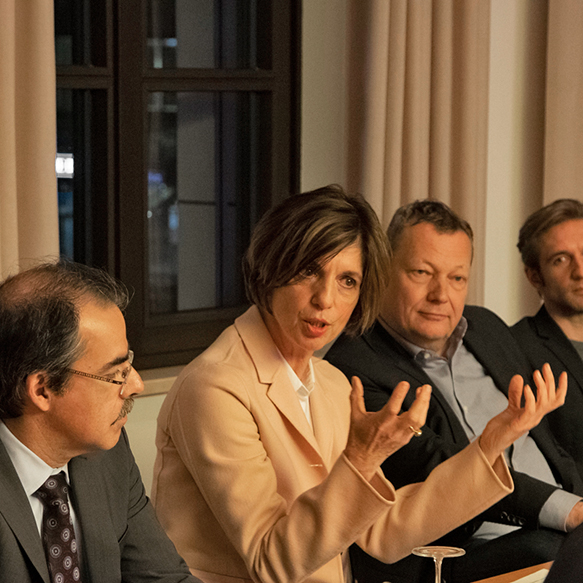
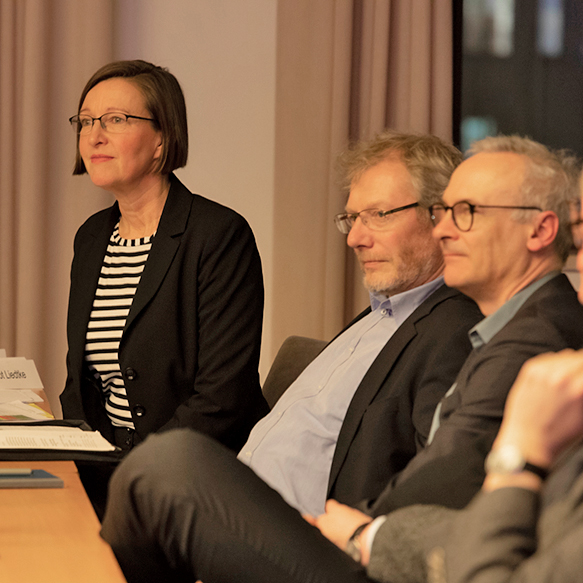
BR50 founded
On February 18, 2020, representatives of the non-university research institutions met in the Max Liebermann Haus at the Brandenburg Gate to found BR50 together. Photos: Katja Bilo/FVB







